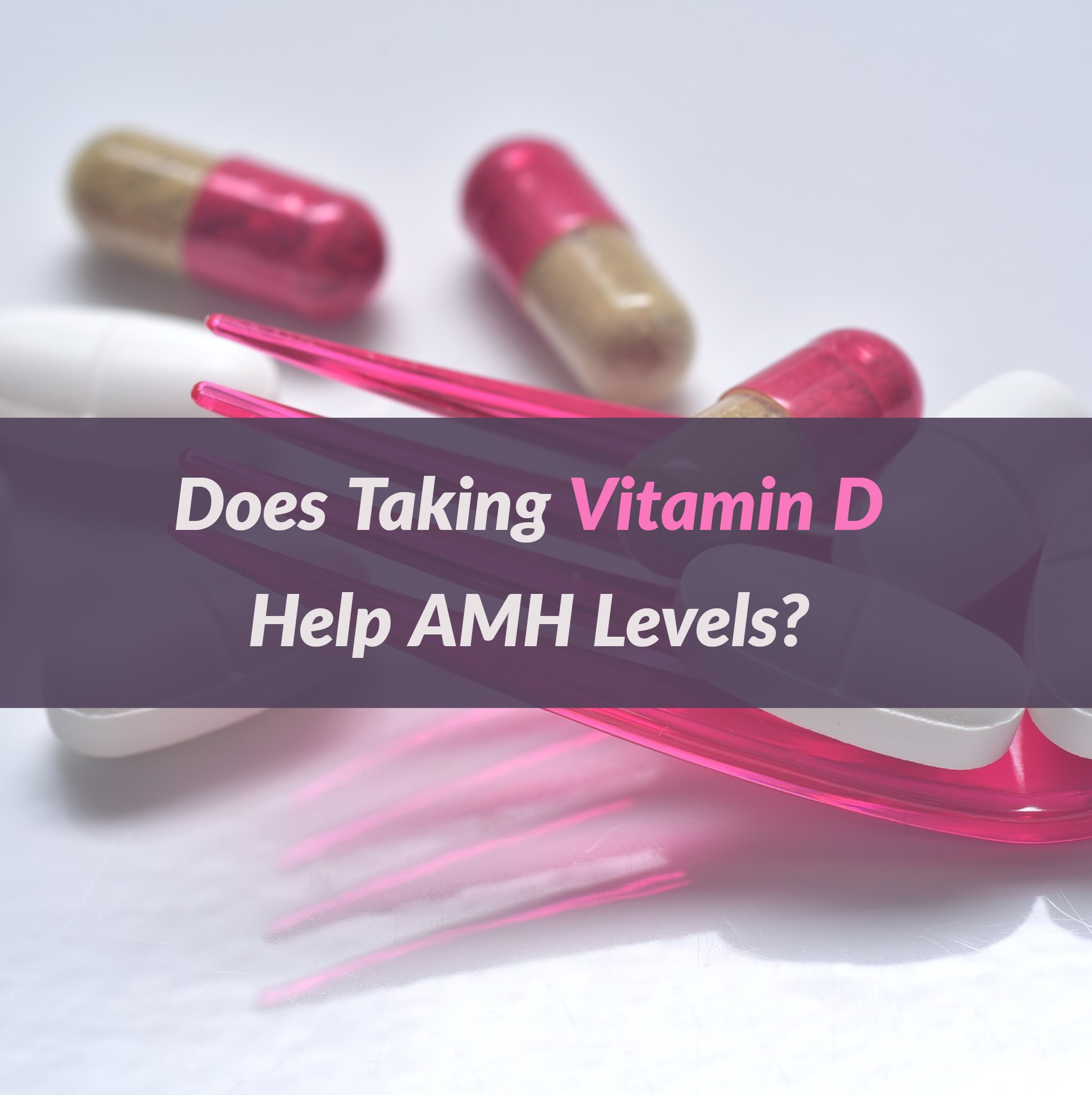
-2.jpg?width=300&name=My%20Post%20(8)-2.jpg) Anti-mullerian hormone (AMH) is now a well-established marker of ovarian reserve. AMH is released by the (granulosa) cells surrounding small (antral and pre-antral) follicles in the ovary. It prevents these follicles from becoming responsive to follicle stimulating hormone (FSH) and thus prevent them from growing into dominant follicles.
Anti-mullerian hormone (AMH) is now a well-established marker of ovarian reserve. AMH is released by the (granulosa) cells surrounding small (antral and pre-antral) follicles in the ovary. It prevents these follicles from becoming responsive to follicle stimulating hormone (FSH) and thus prevent them from growing into dominant follicles.
The highest values of AMH in women are attained after puberty and subsequently decrease with age, likely reflecting the age-related decline in ovarian reserve.
Vitamin D (25OH-D), is a regulator of calcium and phosphate metabolism, and also plays a crucial role in reproductive physiology. Vitamin D has been shown to interact with the AMH gene and increase its functionality (up-regulation).
This very issue was addressed in a paper by Merhi et al. in the journal Fertility and Sterility (Fertil Steril 2012;98:228–34). They analyzed 388 women with regular menstrual cycles. They divided them into three groups based on age (Group I < 35 year, n =128; Group II 35 – 39 years, n = 119 and Group III > 40 years, n = 141). They looked at the correlation between Vitamin D and AMH levels after adjusting for HIV status, body mass index, race, smoking, illicit drug use, glucose and insulin levels, estimated glomerular filtration rate, and geographic site of participation.
After adjusting for all covariates, they found a definite correlation between Vitamin D levels and AMH levels. This was especially so in patients > 40 years old. Patients with low Vitamin D levels had lower AMH levels.
The study did not address the issue of whether correction of the Vitamin D deficiency will raise the AMH level.
Ross et al. studied the relationship between Vitamin D and AMH levels (in an abstract presented at last years ASRM meeting) in egg donors and women undergoing IVF. They found an inverse relationship between Vitamin D and AMH among women infertile women ages 38-42 undergoing IVF. They also found no statistically significant correlation between Vitamin D and AMH among egg donors or infertile patients under the age of 38 undergoing IVF.
My interpretation of the literature is that there may be a relationship between Vitamin D levels and AMH. There are no data (so far) confirming that treating with Vitamin D increases AMH levels and therefore the ovarian reserve.
Infertility Infertility treatment IVF Diminished ovarian reserve

Dr. Karande is Board Certified in the specialty of Obstetrics and Gynecology as well as the subspecialty of Reproductive Endocrinology and Infertility. He is a Fellow of the American College of Obstetricians and Gynecologists and Member of the American Society for Reproductive Medicine.
Subscribe to our weekly blog digest

Entire Website © 2003 - 2020
Karande and Associates d/b/a InVia
Fertility Specialists

Comments